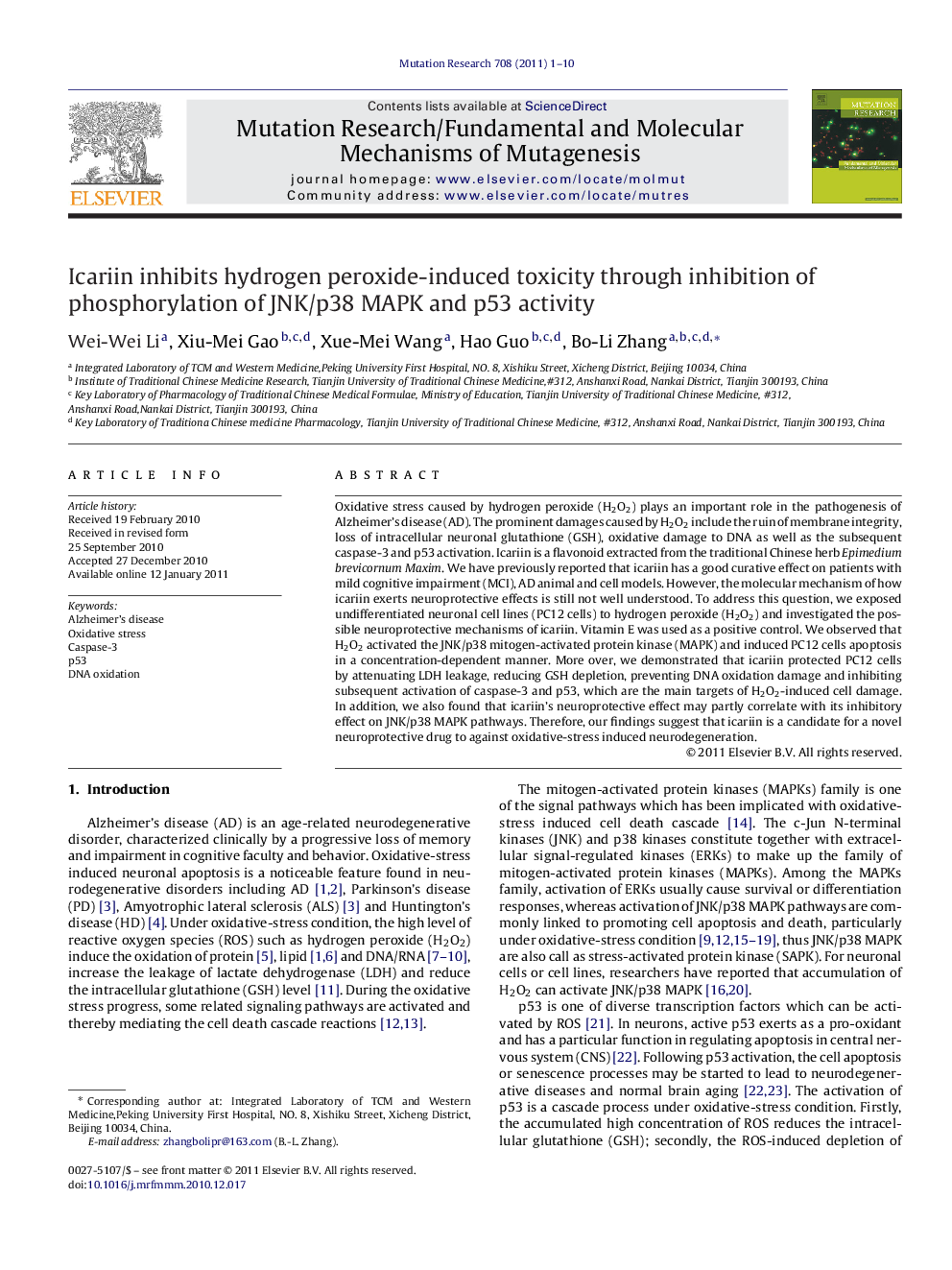| Article ID | Journal | Published Year | Pages | File Type |
|---|---|---|---|---|
| 2146682 | Mutation Research/Fundamental and Molecular Mechanisms of Mutagenesis | 2011 | 10 Pages |
Oxidative stress caused by hydrogen peroxide (H2O2) plays an important role in the pathogenesis of Alzheimer's disease (AD). The prominent damages caused by H2O2 include the ruin of membrane integrity, loss of intracellular neuronal glutathione (GSH), oxidative damage to DNA as well as the subsequent caspase-3 and p53 activation. Icariin is a flavonoid extracted from the traditional Chinese herb Epimedium brevicornum Maxim. We have previously reported that icariin has a good curative effect on patients with mild cognitive impairment (MCI), AD animal and cell models. However, the molecular mechanism of how icariin exerts neuroprotective effects is still not well understood. To address this question, we exposed undifferentiated neuronal cell lines (PC12 cells) to hydrogen peroxide (H2O2) and investigated the possible neuroprotective mechanisms of icariin. Vitamin E was used as a positive control. We observed that H2O2 activated the JNK/p38 mitogen-activated protein kinase (MAPK) and induced PC12 cells apoptosis in a concentration-dependent manner. More over, we demonstrated that icariin protected PC12 cells by attenuating LDH leakage, reducing GSH depletion, preventing DNA oxidation damage and inhibiting subsequent activation of caspase-3 and p53, which are the main targets of H2O2-induced cell damage. In addition, we also found that icariin's neuroprotective effect may partly correlate with its inhibitory effect on JNK/p38 MAPK pathways. Therefore, our findings suggest that icariin is a candidate for a novel neuroprotective drug to against oxidative-stress induced neurodegeneration.
